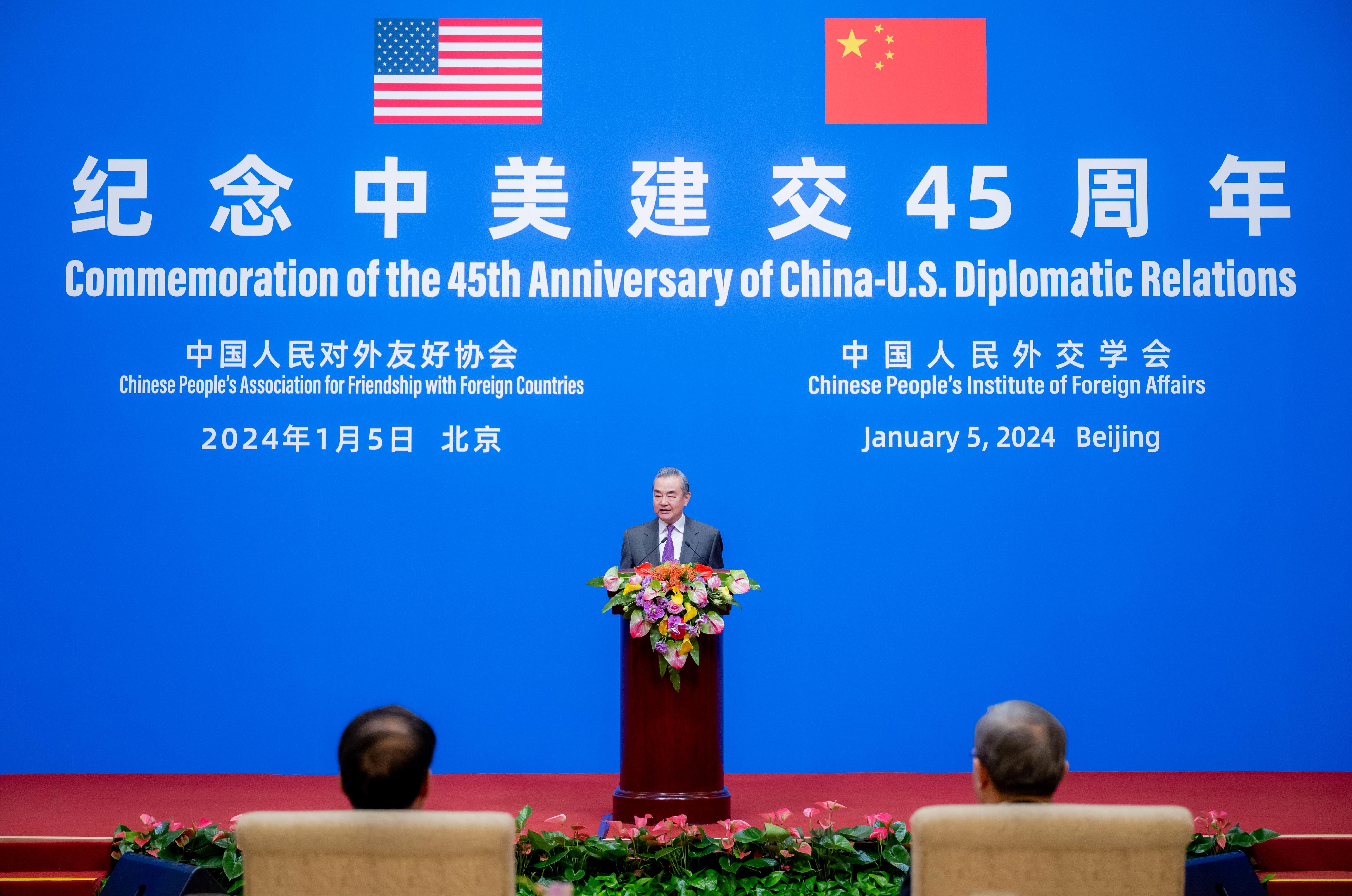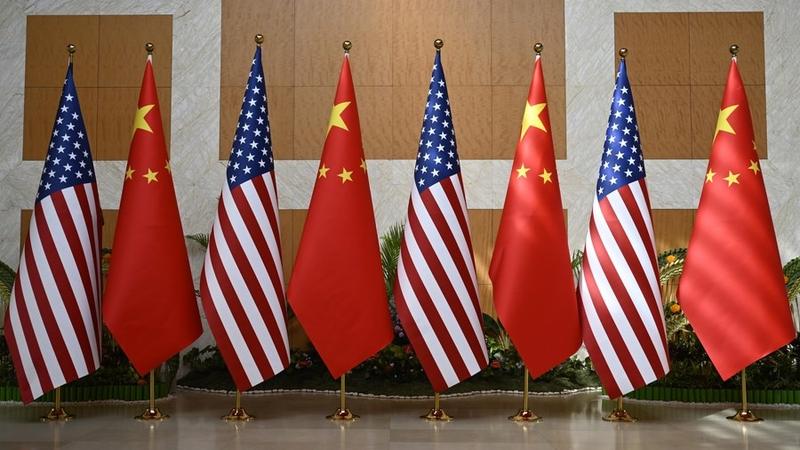 Chinese Foreign Minister Wang Yi delivers a speech during a reception commemorating the 45th anniversary of China-US diplomatic relations, in Beijing, capital of China, on Jan 5, 2024. (PHOTO / XINHUA)
Chinese Foreign Minister Wang Yi delivers a speech during a reception commemorating the 45th anniversary of China-US diplomatic relations, in Beijing, capital of China, on Jan 5, 2024. (PHOTO / XINHUA)
China reaffirmed its commitment to building a stable, healthy and sustainable relationship with the United States on Friday, with its top diplomat calling on both sides to assume the vision and role befitting major countries to give the world "rock-solid certainty and positive energy".
Addressing a reception commemorating the 45th anniversary of China-US diplomatic relations, Foreign Minister Wang Yi said bilateral cooperation is "not something dispensable or optional". "It is something we must do, and must do well," he told diplomats, business leaders and scholars attending a ceremony held at the Diaoyutai State Guesthouse in Beijing.
The reception was held days after Chinese President Xi Jinping and US President Joe Biden exchanged congratulatory letters on the 45th anniversary of diplomatic relations, with both heads of states pledging to keep advancing the bilateral ties, building on the progress made during their San Francisco summit in November.
Chinese Foreign Minister Wang Yi elaborated on the need for both nations to ensure peaceful coexistence with effective management of disagreements as the top priority. Disagreements between the two nations should not lead to confrontation, still less willful sanctions, power politics, hegemonism or zero-sum game, he stressed
Speaking at the reception, Wang underlined peace as the "most fundamental bedrock of China-US relations". "The absence of conflict and confrontation between the two major countries is in itself the most important peace dividend for humanity," he said.
He also stressed that win-win cooperation is the most essential feature of China-US interaction. Trade between the world's two largest economies reached about $760 billion in 2022, with two-way investment exceeding $260 billion. The number points to the complementarity between the two nations in economic structure, connectivity in global industrial and supply chains, and shared interest in common development, Wang said.
ALSO READ: Ministry: China is committed to sound ties with US
Wang elaborated on the need for both nations to ensure peaceful coexistence with effective management of disagreements as the top priority. Disagreements between the two nations should not lead to confrontation, still less willful sanctions, power politics, hegemonism or zero-sum game, he stressed.
"What is needed is a vision and an unwavering commitment to seeking common ground while shelving differences and allowing no disagreements or differences to dominate or disrupt the bilateral relationship," he said. Wang also made an appeal for both nations to "remove barriers to exchanges, break false information cocoons, forge closer links between the two peoples, and generate more positive energy for China-US relations".
Shari Bistransky, deputy public affairs officer of the US Embassy in China, said on the sidelines of the event that she is optimistic that the US and China "are on track to work well together in 2024", as both nations are looking to take advantage of the momentum created by the summit in San Francisco.
 This file photo taken on Nov 14, 2022 shows the national flags of China and the United States in Bali, Indonesia. (PHOTO / XINHUA)
This file photo taken on Nov 14, 2022 shows the national flags of China and the United States in Bali, Indonesia. (PHOTO / XINHUA)
Meanwhile, China has already started to implement the pledge by Xi in San Francisco to invite 50,000 young US citizens to China on exchange and study programs in the next five years.
Boris Escalona Berbetty, a program manager at the International Studies Office of the University of Virginia, said students from the university are now setting the stage for the exchange and study programs.
"The reciprocal exchange between both nations is essential not only to develop cultural understanding, but to create a solid foundation for both nations to work together and continue building on this existing relationship," he said.
READ MORE: Foreign Ministry: China's US policy consistent, clear
"We hope that we can continue bringing more students in the years ahead so they can actually take advantage and understand more about Chinese culture."
Yuan Zheng, deputy director of the Chinese Academy of Social Sciences' Institute of American Studies, said it could require greater efforts for Beijing and Washington to stabilize ties in 2024, with the US general elections expected to deliver more disruptive factors.
"In this context, scaling up people-to-people exchanges is even more important to build up the foundation and garner greater public support for the stability of China-US relations," he said.


